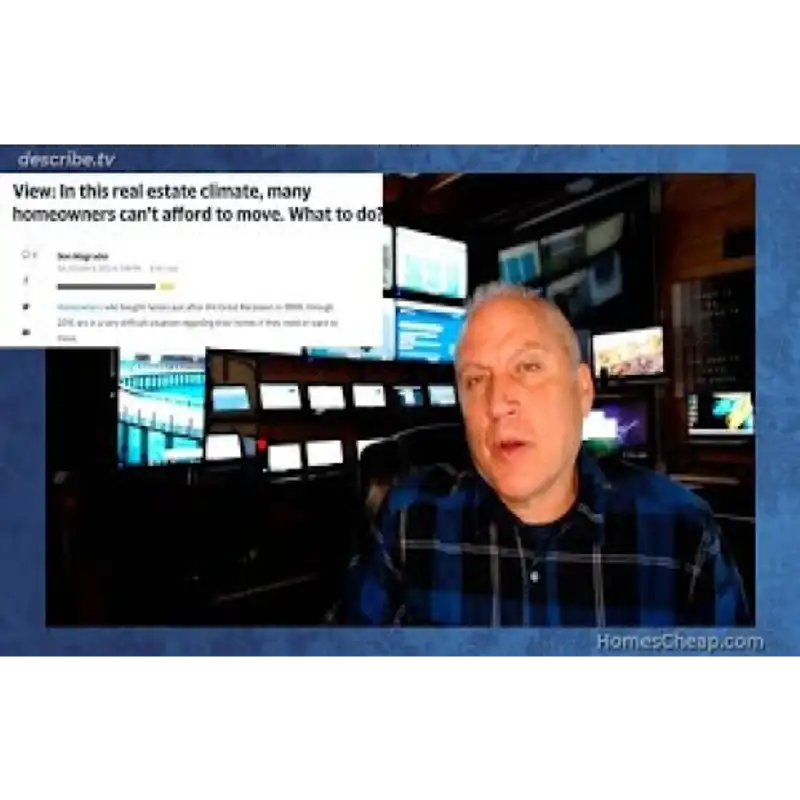Trapped in Place: Why Millions of Homeowners Can't Sell Their Homes
Download MP3One of the biggest hidden risks to the current housing market is that there's a lot of people living in homes that they own but can't move from. They're locked in, and this locked-in effect is going to have more to do with what happens with the real estate market in the next three to four years than any other factor—not mortgage rates, not prices. It's because people are locked into their homes. Why is that the case? Well, what you have is a scenario where people who bought homes anytime in the last 20 years are in a position where they have a relatively low interest rate. Depending on when you purchased and/or refinanced, you probably have a rate of 3%, maybe 4%. Not many people who are homeowners have rates of 5% and above unless you purchased in the last 90 days or maybe even six months. Right now, you're going to be looking at 2%, 3%, or 4%. Even if you bought in 2010, when rates were 6% or 7%, you probably refinanced maybe five years ago to get a 3% rate.
The other thing is, people who are in homes, if you're going to sell a house, you need to buy a new one. There's not much inventory. There’s more than there was a year ago, but it's still way less than a normal amount of inventory. So, if you're looking at homes, you're going to find slim pickings. There’s not much for sale that’s any good. The house you have is probably going to be more desirable, even if you're getting kind of antsy or bored with your house or maybe want to move to a different area. As you look for homes, you're going to find that there's not much for sale that’s any good. The houses won't be in as good condition, they won't have the features you want, and you might say, "Let me just fix up the house I have." That’s what a lot of people are doing. Do you feel that way? Put a message in the comments if you're seeing the same thing in your particular household.
Now, what about mortgage rates? Well, even if you want to go sideways and buy the same exact house you have now, you might say, "Look, I paid $250K for my house; I can sell it for $500K or $550K. I'll go buy another $550K house in the town where I want to move to and I'll be even." Wrong. Because now you’re going to be trading in your 3.5% mortgage for a 7% mortgage. So, for the same-priced house, you might spend $1,000 a month more by the time you figure property taxes, insurance, and the higher interest rate. You’re going to say, "Well, for $1,000, I can take out a home equity line and fix up my house or spend that $1,000 a month on cash for buying things for my house."
So, this locked-in effect is going to keep a lot of mobility from happening in the housing market. It’s also going to affect the job market. If you want to move to take on a new job in another city but you have to switch houses and go from a 3% to a 7% mortgage, that job better be really good. Because now you're going to be locked into a higher interest rate. Plus, when you move homes, your property tax goes up. Most states have laws that, even if your home value goes up dramatically, property taxes can only go up incrementally. But if you jump to a new house, you're going to be ratcheted up to a new tax level. So, don’t fall into that trap if you're saying, "Well, this new house is the same price as when I’m selling my old house, so my taxes would be the same, right?" Maybe not. Disregard the old tax bill and get an estimate from the county on what your new tax bill would be.
Be aware that this lock-in effect is going to have more to do with what happens to home prices and the sales rate of homes in the next few years, no matter what people think about whether the prices are too high.

